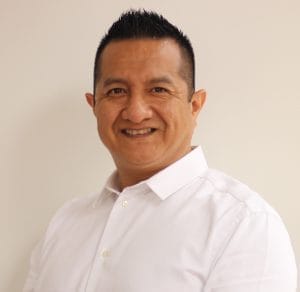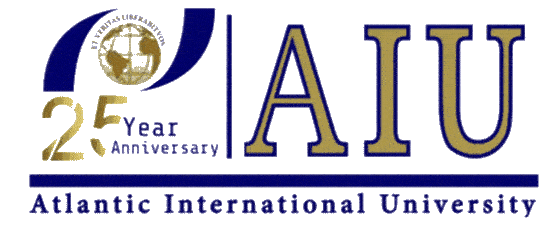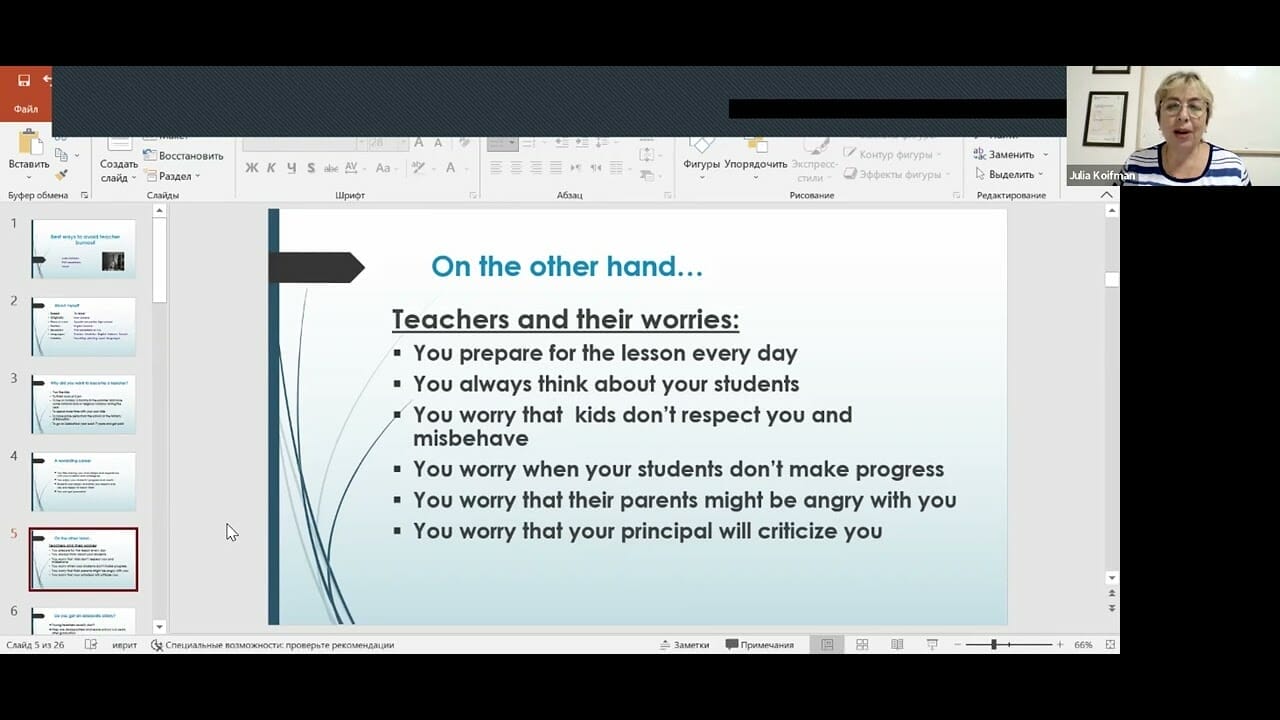- RESEARCHDistance Learning at AIU is enhanced by vast academic resources and innovative technologies build into the Virtual Campus: Hundreds of self-paced courses with video lectures and step by step lessons, thousands of optional assignments, 140,000 e-books, the Social Media & Networking platform allowing collaboration/chat/communications between students, and MYAIU develop students holistically in 11 areas beyond just academics.
- PROGRAMS OFFERED
- Areas of Study
- Courses and Curriculum
- Open Courses
- Register for a Program
- Certificate Program
-
Associate program
- Associate in Actuarial Science
- Associate in Addiction Counseling
- Associate in Agriculture Food And Resources
- Associate in Animal Science
- Associate in Anti Terrorism Security
- Associate in Behavior Analysis In Special Education
- Associate in Bioethics
- Associate in Biosystems
- Associate in Blockchain Technology & Digital Currency
- Associate in Business Communication
- Associate in Business Management
- Associate in Chemistry
- Associate in Climatology
- Associate in Cloud Computing
- Associate in Computer Engineering
- Associate in Computer Programming
- Associate in Computer Science
- Associate in Criminal Justice
- Associate in Culinary Arts
- Associate in Cultural Theological Communication
- Associate in Cybersecurity And Hacking
- Associate in Data Communication And Networking
- Associate in Database Administrator
- Associate in Early Childhood Education
- Associate in Ecotechnology
- Associate in Ecotourism
- Associate in Education
- Associate in Educational Technology
- Associate in Electric Vehicle Engineering
- Associate in Electrochemical Engineering
- Associate in Electronic Engineering
- Associate in English Literature
- Associate in Environmental Science
- Associate in eVTOL Engineering
- Associate in Fashion Design
- Associate in Fine Arts
- Associate in Foreign Trade
- Associate in Genetic Engineering
- Associate in Geography
- Associate in Geology
- Associate in Geophysical Sciences
- Associate in Graphic Design
- Associate in Health Sciences
- Associate in History
- Associate in Human Resources
- Associate in Integrated Water Management
- Associate in International Finance
- Associate in International Marketing
- Associate in Islamic Studies
- Associate in Kinesiology And Physiotherapy
- Associate in Library technology
- Associate in Linguistics
- Associate in Management
- Associate in Management Information Systems
- Associate in Maritime Management
- Associate in Metallurgy
- Associate in Micro and Multimode Grid Design
- Associate in Modern Power and Energy Systems
- Associate in Multimedia Design and Digital Art
- Associate in Nutrition
- Associate in Oil Gas And Energy Engineering
- Associate in Operations Management
- Associate in Optoelectronic Systems
- Associate in Organizational Development
- Associate in Organizational Diversity
- Associate in Pedagogical Training For Professionals
- Associate in Physical Culture And Sports
- Associate in Physics
- Associate in Public Health
- Associate in Quantum Computing Technology
- Associate in Radio And Television Production
- Associate in Scenography
- Associate in Social Media Marketing
- Associate in Sociology
- Associate in Sports Marketing
- Associate in Sports Psychology
- Associate in Sustainable Design and Construction
- Associate in Sustainable Materials Science
- Associate in Sustainable Natural Resources Management
- Associate in Sustainable Tourism
- Associate in Synthetic Biology
- Associate in Virtual Archival Science
- Associate of Adult Education
- Associate of Advertising
- Associate of Agriculture
- Associate of American History
- Associate of Biology
- Associate of Chemical Engineering
- Associate of Civil Engineering
- Associate of Communications
- Associate of Construction Management
- Associate of Economics
- Associate of Educational Administration
- Associate of Electrical Engineering
- Associate of Finance
- Associate of Healthcare Administration
- Associate of Human Resources Management
- Associate of Humanities
- Associate of Hydrology
- Associate of Industrial Engineering
- Associate of Information Systems
- Associate of Information Technology
- Associate of Interior Design
- Associate of International Relations
- Associate of Journalism
- Associate of Legal Studies
- Associate of Logistics
- Associate of Marketing
- Associate of Mass Media and Communication
- Associate of Mathematics
- Associate of Mechanical Engineering
- Associate of Mining Engineering
- Associate of Music
- Associate of Nutrition Science
- Associate of Philosophy
- Associate of Physical Education
- Associate of Political Science
- Associate of Project Management
- Associate of Psychology
- Associate of Renewable Energy
- Associate of Software Engineering
- Associate of Sport Science
- Associate of Statistics
- Associate of Strategic Management
- Associate of Technical Writing
- Associate of Telecommunications
- Associate of Theater
- Associate of Theology
- Associate of Tourism Planning and Development
- Associate of Travel and Tourism
- Associate of Unmanned Areal Systems Engineering
- Associates in Artificial Intelligence
- Associates in Engineering Systems
- Associates in Physical Anthropology
- Associates in Social Sciences
- Associates in Sociocultural Anthropology
- Associates in Systems Engineering
- Associates of Accounting
- Associates of Anthropology
- Associates of Archeology
- Associates of Architecture
- Associates of Art History
- Associates of Banking and Finance
- Associates of Business Administration
- Associates of Public Administration
- Associates of Science
- Associates of Urban Planning
- Associates of Visual and Performing Arts
- Micro and Multimode Grid Design
-
Bachelor Program
- Bachelor in Data Communication and Networking
- Bachelor in Actuarial Science
- Bachelor in Addiction Counseling
- Bachelor in Agriculture, Food and Resources
- Bachelor in Animal Science
- Bachelor in Anthropology
- Bachelor in Anti Terrorism Security
- Bachelor in Artificial Intelligence
- Bachelor in Arts in Cultural Theological Communication
- Bachelor in Autonomous Vehicle Technology
- Bachelor in Bachelor of Bioethics (BA)
- Bachelor in Behavior Analysis in Special Education
- Bachelor in Bibliotechnology
- Bachelor in Biosystems
- Bachelor in Blockchain Technology & Digital Currency
- Bachelor in Business Communication
- Bachelor in Business Management
- Bachelor in Chemistry
- Bachelor in Cloud Computing
- Bachelor in Computer Science
- Bachelor in Criminal Justice
- Bachelor in Culinary Arts
- Bachelor in Cybersecurity and Hacking
- Bachelor in Database Administrator (BS)
- Bachelor in Ecotechnology
- Bachelor in Ecotourism
- Bachelor in Education (B.Ed, BS)
- Bachelor in Educational Technology
- Bachelor in Electric Vehicle Engineering
- Bachelor in Electrochemical Engineering
- Bachelor in English Literature
- Bachelor in eVTOL Engineering
- Bachelor in Fashion Design (BA)
- Bachelor in Fine Arts
- Bachelor in Foreign Trade
- Bachelor in Genetic Engineering
- Bachelor in Geology
- Bachelor in Geophysical Sciences
- Bachelor in Graphic Design
- Bachelor in Health Sciences
- Bachelor in Integrated Water Management
- Bachelor in International Finance
- Bachelor in International Marketing
- Bachelor in Islamic Studies
- Bachelor in Kinesiology and Physiotherapy
- Bachelor in Linguistics
- Bachelor in Management
- Bachelor in Metallurgy
- Bachelor in Micro and Multimode Grid Design
- Bachelor in Modern Power and Energy Systems
- Bachelor in Multimedia Design and Digital Art
- Bachelor in Nutrigenetics
- Bachelor in Operations Management (BA)
- Bachelor in Optoelectronic Systems
- Bachelor in Organizational Development
- Bachelor in Organizational Diversity
- Bachelor in Pedagogical Training for Professionals
- Bachelor in Physical Anthropology
- Bachelor in Physical Culture And Sports
- Bachelor in Physics
- Bachelor in Public Relations
- Bachelor in Quantum Computing Technology
- Bachelor in Radio And Television Production
- Bachelor in Scenography
- Bachelor in Social Media Marketing
- Bachelor in Social Sciences
- Bachelor in Sociocultural Anthropology
- Bachelor in Sport Management
- Bachelor in Sports Marketing
- Bachelor in Sports Psychology
- Bachelor in Sustainable Design and Construction
- Bachelor in Sustainable Materials Science
- Bachelor in Sustainable Natural Resources Management
- Bachelor in Sustainable Tourism
- Bachelor in Synthetic Biology
- Bachelor in Virtual Archival Science
- Bachelor of Adult Education
- Bachelor of Advertising
- Bachelor of Animation
- Bachelor of Art History
- Bachelor of Biohacking and Nutrigenomics
- Bachelor of Educational Administration
- Bachelor of Healthcare Administration
- Bachelor of Human Resources Management
- Bachelor of Humanities
- Bachelor of Hydrology
- Bachelor of Information Technology
- Bachelor of Journalism
- Bachelor of Mass Media and Communication
- Bachelor of Mathematics
- Bachelor of Philosophy
- Bachelor of Physical Education
- Bachelor of Project Management
- Bachelor of Public Administration
- Bachelor of Software Engineering
- Bachelor of Sport Science
- Bachelor of Sports Science
- Bachelor of Statistics
- Bachelor of Strategic Management
- Bachelor of Technical Writing
- Bachelor of Theater
- Bachelor of Theology
- Bachelor of Tourism Planning and Development
- Bachelor of Travel and Tourism
- Bachelor of Unmanned Areal Systems Engineering
- Bachelor of Urban Planning
- Bachelor of Visual and Performing Arts
- Bachelor of Web Design
- Bachelors in Energy Storage and Battery Technology
- Bachelors in Accounting
- Bachelors in Accounting & Finance
- Bachelors in Agronomy Engineering
- Bachelors in Architecture
- Bachelors in Banking and Finance
- Bachelors in Biology
- Bachelors in Business Administration
- Bachelors in Chemical Engineering
- Bachelors in Civil Engineering
- Bachelors in Communications
- Bachelors in Computer Engineering
- Bachelors in Criminal Justice
- Bachelors in Early Childhood Education
- Bachelors in Economics
- Bachelors in Electrical Engineering
- Bachelors in Electronic Engineering
- Bachelors in Engineering
- Bachelors in Environmental Science
- Bachelors in Finance
- Bachelors in Finance and Banking
- Bachelors in History
- Bachelors in Hospitality Management
- Bachelors in Human Resources
- Bachelors in Industrial Engineering
- Bachelors in Information Systems
- Bachelors in Interior Design
- Bachelors in International Business
- Bachelors in International Relations
- Bachelors in Legal Studies
- Bachelors in Logistics
- Bachelors in Marketing
- Bachelors in Mechanical Engineering
- Bachelors in Mining Engineering
- Bachelors in Music
- Bachelors in Nutrition
- Bachelors in Oil Gas and Energy Engineering
- Bachelors in Political Science
- Bachelors in Psychology
- Bachelors in Public Health
- Bachelors in Renewable Energy
- Bachelors in Sociology
- Bachelors in Systems Engineering
- Bachelors in Telecommunications
- Bachelors in Zoology
-
Doctorate Program
- DBA – Doctor of Business Administration
- Doctor | in Actuarial Science
- Doctor | in Agriculture Food And Resources
- Doctor | in Animal Science
- Doctor | in Biosystems
- Doctor | in Cultural Theological Communication
- Doctor | in Cybersecurity And Hacking
- Doctor | in Early Childhood Education
- Doctor | in Ecotechnology
- Doctor | In Ecotourism
- Doctor | In Educational Technology
- Doctor | In Electronic Engineering
- Doctor | In Foreign Trade
- Doctor | of Biology (PhD)
- Doctor in Addiction Counseling
- Doctor in Behavior Analysis In Special Education
- Doctor in Bibliotechnology
- Doctor in Business Management
- Doctor in Data Communication And Networking
- Doctor of Adult Education
- Doctor of Agriculture
- Doctor of American History
- Doctor of Animation
- Doctor of Anthropology
- Doctor of Archaeology
- Doctor of Architecture (Ph.D.)
- Doctor of Art History
- Doctor of Artificial Intelligence
- Doctor of Autonomous Vehicle Technology
- Doctor of Biohacking and Nutrigenomics
- Doctor of Business Management (DBM)
- Doctor of Civil Engineering (D.Sc)
- Doctor of Cloud Computing
- Doctor of Economics (PhD)
- Doctor of Educational Administration (PhD)
- Doctor of Electric Vehicle Engineering
- Doctor of Electrical Engineering (D.Sc, PhD)
- Doctor of Electrochemical Engineering
- Doctor of Engineering Systems (D.Sc)
- Doctor of eVTOL Engineering
- Doctor of Finance (PhD)
- Doctor of Humanities
- Doctor of Hydrology
- Doctor of Industrial Engineering (D.Sc)
- Doctor of International Relations (D.Sc)
- Doctor of Legal Studies (PhD)
- Doctor of Logistics
- Doctor of Mass Media and Communication
- Doctor of Mechanical Engineering (D.Sc)
- Doctor of Micro and Multimode Grid Design
- Doctor of Mining Engineering
- Doctor of Music
- Doctor of Nutrition Science
- Doctor of Optoelectronic Systems
- Doctor of Project Management (PhD)
- Doctor of Public Administration
- Doctor of Public Health (PhD, D.Sc)
- Doctor of Quantum Computing
- Doctor of Renewable Energy
- Doctor of Sociology (PhD, D.Sc)
- Doctor of Software Engineering
- Doctor of Sport Management
- Doctor of Sport Science
- Doctor of Statistics
- Doctor of Technical Writing
- Doctor of Telecommunications (D.Sc)
- Doctor of Theater
- Doctor of Tourism Planning and Development
- Doctor of Travel and Tourism
- Doctor of Unmanned Aerial Systems Engineering
- Doctor of Visual and Performing Arts
- Doctor of Web Design
- Doctoral Degree Programs
- Doctoral in International Finance
- Doctorate in Accounting
- Doctorate in Actuarial Science
- Doctorate in Adult Counseling
- Doctorate in Advertising
- Doctorate in Agriculture Food And Resources
- Doctorate in Animal Science
- Doctorate in Anti Terrorism Security
- Doctorate in Behavior Analysis In Special Education
- Doctorate in Bibliotechnology
- Doctorate in Bioethics
- Doctorate in Biosystems
- Doctorate in Business Administration (DBA, PhD)
- Doctorate in Business Communication
- Doctorate in Business Management
- Doctorate in Chemical Engineering (D.Sc)
- Doctorate in Chemistry
- Doctorate in Clinical Nutrition
- Doctorate in Communication Online (D.Sc)
- Doctorate in Computer Engineering
- Doctorate in Computer Science
- Doctorate in Conflict Resolution & Peace Building
- Doctorate in Criminal Justice
- Doctorate in Culinary Arts
- Doctorate in Cultural Theological Communication
- Doctorate in Cyber Security & Hacking
- Doctorate in Data Communication And Networking
- Doctorate in Digital Marketing
- Doctorate in Early Childhood Education
- Doctorate in Ecotechnology
- Doctorate in Ecotourism
- Doctorate in Education
- Doctorate in Educational Technology
- Doctorate in Electronic Engineering
- Doctorate in Environmental Science
- Doctorate in Fashion Design
- Doctorate in Fine Arts
- Doctorate in Foreign Trade
- Doctorate in Genetic Engineering
- Doctorate in Geophysical Sciences
- Doctorate in Global Health
- Doctorate in Health Sciences
- Doctorate in Healthcare Administration Programs (PhD)
- Doctorate in Hospital Administration
- Doctorate in Human Resource Management (PhD)
- Doctorate in Human Resources
- Doctorate in Information Systems (D.Sc)
- Doctorate in Information Technology (D.Sc)
- Doctorate in Integrated Water Management
- Doctorate in Interior Design (PhD)
- Doctorate in International Marketing
- Doctorate in International Relations
- Doctorate in Islamic Studies
- Doctorate in Journalism (PhD)
- Doctorate in Kinesiology & Physiotherapy
- Doctorate in Linguistics
- Doctorate in Management
- Doctorate in Maritime Management
- Doctorate in Marketing (PhD)
- Doctorate in Mathematics
- Doctorate in Metallurgy
- Doctorate in Modern Power and Energy Systems
- Doctorate in Multimedia Design and Digital Art
- Doctorate in Oil Gas And Energy Engineering
- Doctorate in Organizational Development
- Doctorate in Organizational Diversity
- Doctorate in Pedagogical Training For Professionals
- Doctorate in Physical Anthropology
- Doctorate in Physical Culture And Sports
- Doctorate in Physical Education (D.Sc)
- Doctorate in Political Science
- Doctorate in Psychology (PhD, DPsy)
- Doctorate in Radio And Television Production
- Doctorate in Scenography
- Doctorate in Security Management
- Doctorate in Social Media Marketing
- Doctorate in Sociocultural Anthropology
- Doctorate in Sports Management
- Doctorate in Sports Marketing
- Doctorate in Sports Psychology
- Doctorate in Strategic Leadership
- Doctorate in Strategic Management
- Doctorate in Sustainable Design and Construction
- Doctorate in Sustainable Materials Science
- Doctorate in Sustainable Natural Resources Management
- Doctorate in Sustainable Tourism
- Doctorate in Synthetic Biology
- Doctorate in Virtual Archival Science
- Doctorate of Theology
- DS – Doctorate in Science
- Online Doctorate in Health Administration
- Online Doctorate in Hospitality
- Online Doctorate in Philosophy
- Postdoctoral in Bioethics
- School of Social and Human Studies
-
Master Program
- Master in Actuarial Science
- Master in Addiction Counseling
- Master in Agriculture Food And Resources
- Master in Animal Science
- Master in Anti Terrorism Security
- Master in Autonomous Vehicle Technology
- Master in Behavior Analysis In Special Education
- Master in Bibliotechnology
- Master in Bioethics
- Master in Biosystems
- Master in Blockchain Technology and Digital Currency
- Master in Business Communication
- Master in Business Management
- Master in Chemistry
- Master in Climatology
- Master in Cloud Computing
- Master in Computer Programming
- Master in Computer Science
- Master in Criminal Justice
- Master in Culinary Arts
- Master in Cultural Theological Communication
- Master in Cybersecurity And Hacking
- Master in Data Communication And Networking
- Master in Database Administrator
- Master in Early Childhood Education
- Master in Ecotechnology
- Master in Ecotourism
- Master in Educational Technology
- Master in Electric Vehicle Engineering
- Master in Electronic Engineering
- Master in Energy Storage and Battery Technology
- Master in Engineering Systems (MS)
- Master in Environmental Science
- Master in eVTOL Engineering
- Master in Fashion Design
- Master in Fine Arts
- Master in Foreign Trade
- Master in Geography
- Master in Geophysical Sciences
- Master in Graphic Design
- Master in Health Sciences
- Master in History
- Master in Industrial Engineering
- Master in Integrated Water Management
- Master in International Finance
- Master in International Marketing
- Master in Islamic Studies
- Master in Kinesiology And Physiotherapy
- Master in Linguistics
- Master in Management
- Master in Management Information Systems
- Master in Mass Media and Communication
- Master in Metallurgy
- Master in Micro and Multimode Grid Design
- Master in Microbiology
- Master in Modern Power and Energy Systems
- Master in Multimedia Design and Digital Art
- Master in Nutritional Science
- Master in Oil Gas And Energy Engineering
- Master in Organizational Development
- Master in Organizational Diversity
- Master in Pedagogical Training For Professionals
- Master in Philosophy
- Master in Physical Anthropology
- Master in Physical Culture And Sports
- Master in Political Science
- Master in Public Administration (MA)
- Master in Quantum Computing
- Master in Radio And Television Production
- Master in Scenography
- Master in Social Media Marketing
- Master in Social Sciences
- Master in Sociocultural Anthropology
- Master in Sociology (MA, MS)
- Master in Software Engineering
- Master in Sport Management
- Master in Sport Science
- Master in Sports Marketing
- Master in Sports Psychology
- Master in Statistics
- Master in Strategic Management
- Master in Sustainable Design and Construction
- Master in Sustainable Materials Science
- Master in Sustainable Natural Resources Management
- Master in Sustainable Tourism
- Master in Synthetic Biology
- Master in Technical Writing
- Master in Theater
- Master in Theology
- Master in Unmanned Aerial Systems Engineering (UAV and Drone Technology)
- Master in Virtual Archival Science
- Master of Adult Education
- Master of Advertising (MS, MBA)
- Master of Agriculture (MS)
- Master of American History
- Master of Animation
- Master of Anthropology (MA)
- Master of Archeology (MA)
- Master of Architecture (MS)
- Master of Art History (MA)
- Master of Artificial Intelligence
- Master of Banking and Finance (MA)
- Master of Biohacking and Nutrigenomics
- Master of Biology (MS)
- Master of Business Management (MS, MBM)
- Master of Chemical Engineering (MS)
- Master of Communications (MA, MS)
- Master of Computer Engineering
- Master of Construction Management
- Master of Economics (MS)
- Master of Electrical Engineering (MS, MSEE)
- Master of Human Resources Management (MHRM)
- Master of Humanities (MA)
- Master of Hydrology (MS)
- Master of Information Systems (MS)
- Master of Information Technology (MS, MIT)
- Master of Interior Design (MA)
- Master of International Relations (MS)
- Master of Journalism (MA, MJ)
- Master of Legal Studies (MA)
- Master of Logistics (MA)
- Master of Marketing (MS, MBA, MPA)
- Master of Mathematics (MS)
- Master of Mechanical Engineering (MS)
- Master of Mining Engineering (MS)
- Master of Music (MA)
- Master of Nutrition Science
- Master of Physical Education (MS)
- Master of Renewable Energy (MS)
- Master of Science in Educational Administration (MS)
- Master of Science in Healthcare Administration (MS)
- Master of Telecommunications (MS, M.TEL.)
- Master of Tourism Planning and Development
- Master of Travel and Tourism
- Master of Urban Planning
- Master of Visual and Performing Arts
- Master of Web Design
- Masters in Accounting
- Masters in Business Administration
- Masters in Civil Engineering
- Masters in Education
- Masters in Finance
- Masters in Human Resources
- Masters in International Relations
- Masters in Project Management
- Masters in Psychology
- Masters in Public Health
-
Postdoctoral Program
- Postdoctoral in Actuarial Science
- Postdoctoral in Addiction Counseling
- Postdoctoral in Animal Science
- Postdoctoral in Anti Terrorism Security
- Postdoctoral in Autonomous Vehicle Technology
- Postdoctoral in Behavior Analysis In Special Education
- Postdoctoral in Bibliotechnology
- Postdoctoral in Bioethics
- Postdoctoral in Biohacking and Nutrigenomics
- Postdoctoral in Biosystems
- Postdoctoral in Blockchain Technology and Digital Currency
- Postdoctoral in Business Communication
- Postdoctoral in Business Management
- Postdoctoral in Chemistry
- Postdoctoral in Cloud Computing
- Postdoctoral in Computer Engineering
- Postdoctoral in Computer Science
- Postdoctoral in Criminal Justice
- Postdoctoral in Culinary Arts
- Postdoctoral in Cultural Theological Communication
- Postdoctoral in Cybersecurity And Hacking
- Postdoctoral in Data Communication And Networking
- Postdoctoral in Early Childhood Education
- Postdoctoral in Ecotechnology
- Postdoctoral in Ecotourism
- Postdoctoral in Education
- Postdoctoral in Educational Technology
- Postdoctoral in Electrical Vehicle Engineering
- Postdoctoral in Electrochemical Engineering
- Postdoctoral in Electronic Engineering
- Postdoctoral in Energy Storage and Battery Technology
- Postdoctoral in Engineering Systems
- Postdoctoral in English Literature
- Postdoctoral in Environmental Science
- Postdoctoral in eVTOL Engineering
- Postdoctoral in Fashion Design
- Postdoctoral in Fine Arts
- Postdoctoral in Foreign Trade
- Postdoctoral in Genetic Engineering
- Postdoctoral in Geophysical Sciences
- Postdoctoral in Graphic Design
- Postdoctoral in Health Sciences
- Postdoctoral in Human Resources
- Postdoctoral in Humanities
- Postdoctoral in Integrated Water Management
- Postdoctoral in International Finance
- Postdoctoral in International Marketing
- Postdoctoral in International Relations
- Postdoctoral in Islamic Studies
- Postdoctoral in Journalism
- Postdoctoral in Kinesiology And Physiotherapy
- Postdoctoral in Linguistics
- Postdoctoral in Logistics
- Postdoctoral in Management
- Postdoctoral in Marketing
- Postdoctoral in Mass Communication
- Postdoctoral in Mathematics
- Postdoctoral in Metallurgy
- Postdoctoral in Micro and Multimode Grid Design
- Postdoctoral in Mining Engineering
- Postdoctoral in Modern Power and Energy Systems
- Postdoctoral in Multimedia Design and Digital Art
- Postdoctoral in Music
- Postdoctoral in Nutrigenetics
- Postdoctoral in Nutrition
- Postdoctoral in Oil, Gas and Energy Engineering
- Postdoctoral in Organizational Development
- Postdoctoral in Organizational Diversity
- Postdoctoral in Pedagogical Training For Professionals
- Postdoctoral in Philosophy
- Postdoctoral in Physical Anthropology
- Postdoctoral in Physical Culture And Sports
- Postdoctoral in Political Science
- Postdoctoral in Public Administration
- Postdoctoral in Public Health
- Postdoctoral in Quantum Computing
- Postdoctoral in Radio And Television Production
- Postdoctoral in Social Media Marketing
- Postdoctoral in Social Sciences
- Postdoctoral in Sociocultural Anthropology
- Postdoctoral in Sociology
- Postdoctoral in Software Engineering
- Postdoctoral in Sport Management
- Postdoctoral in Sport Science
- Postdoctoral in Sports Marketing
- Postdoctoral in Sports Psychology
- Postdoctoral in Statistics
- Postdoctoral in Strategic Management
- Postdoctoral in Sustainable Design and Construction
- Postdoctoral in Sustainable Materials Science
- Postdoctoral in Sustainable Natural Resources Management
- Postdoctoral in Sustainable Tourism
- Postdoctoral in Synthetic Biology
- Postdoctoral in Technical Writing
- Postdoctoral in Theater
- Postdoctoral in Theology
- Postdoctoral in Virtual Archival Science
- Postdoctoral of Biology
- Postdoctoral of Industrial Engineering
- Postdoctoral of Information Systems
- Postdoctoral of Legal Studies
- Postdoctoral Research in Accounting
- Postdoctoral Research in Adult Education
- Postdoctoral Research in Advertising
- Postdoctoral Research in Agriculture
- Postdoctoral Research in American History
- Postdoctoral Research in Animation
- Postdoctoral Research in Anthropology
- Postdoctoral Research in Archeology
- Postdoctoral Research in Architecture
- Postdoctoral Research in Art History
- Postdoctoral Research in Artificial Intelligence
- Postdoctoral Research in Banking and Finance
- Postdoctoral Research in Business Administration
- Postdoctoral Research in Business Management
- Postdoctoral Research in Chemical Engineering
- Postdoctoral Research in Civil Engineering
- Postdoctoral Research in Communications
- Postdoctoral Research in Economics
- Postdoctoral Research in Educational Administration
- Postdoctoral Research in Electrical Engineering
- Postdoctoral Research in Finance
- Postdoctoral Research in Healthcare Administration
- Postdoctoral Research in Human Resources Management
- Postdoctoral Research in Information Technology
- Postdoctoral Research in Interior Design
- Postdoctoral Research in International Relations
- Postdoctoral Research in Mechanical Engineering
- Postdoctoral Research in Physical Education
- Postdoctoral Research in Project Management
- Postdoctoral Research in Psychology
- Postdoctoral Research in Renewable Energy
- Postdoctoral Research in Scenography
- Postdoctoral Research in Telecommunications
- Postdoctoral Research in Tourism Planning and Development
- Postdoctoral Research in Travel and Tourism
- Postdoctoral Research in Unmanned Aerial Systems Engineering (UAV and drone technology)
- Postdoctoral Research in Urban Planning
- Postdoctoral Research in Visual and Performing Arts
- Postdoctoral Research in Web Design
- Postdoctoral Research Program
AIU offers a wide range of majors in areas including the Arts, Business, Science, Technology, Social, and Human studies. More than 120 degrees and programs are available for adult learners at the associate’s, bachelor’s, master’s, doctoral and postdoctoral level. - VIRTUAL CAMPUS
Distance Learning at AIU is enhanced by vast academic resources and innovative technologies build into the Virtual Campus: Hundreds of self-paced courses with video lectures and step by step lessons, thousands of optional assignments, 140,000 e-books, the Social Media & Networking platform allowing collaboration/chat/communications between students, and MYAIU develop students holistically in 11 areas beyond just academics.
- ALUMNI
The world is YOUR campus!”, that is the message of AIU’s month magazine Campus Mundi. Hear the voices and see the faces that make up AIU. Campus Mundi brings the world of AIU to you every months with inspirational stories, news and achievements by AIU members from around the world (students and staff are located in over 200 countries).
Doctor of Educational Administration (PhD)
School of Science and Engineering
Academic Freedom to Discover Your Purpose
Open Curriculum Design at Atlantic International University
A Doctorate in Educational Administration is your key to unlocking leadership potential in the field of education. AIU’s Doctorate in Educational Administration is a beacon of excellence in the realm of education leadership. This advanced degree equips you with the knowledge and skills needed to shape the future of educational institutions. Through rigorous coursework and research, you’ll delve deep into topics like educational policy, leadership theory, and organizational management.
As a doctoral student, you’ll have the opportunity to explore real-world challenges, develop innovative solutions, and make a lasting impact on the education system. Whether you aspire to lead a school, university, or government agency, a Doctorate in Educational Administration empowers you to drive positive change and inspire the next generation of educators.
What sets AIU apart is its commitment to flexibility, allowing working professionals to pursue their doctorate while balancing their career and personal life. The program encourages critical thinking and research, fostering the development of innovative solutions to cater to the most pressing challenges in education.
AIU’s Doctorate in Educational Administration opens doors to exciting career opportunities and empowers individuals to drive positive change within educational institutions, making a lasting impact on students, communities, and society as a whole.
Courses and Topics in Doctorate in Educational Administration
AIU’s Doctorate in Educational Administration boasts a dynamic curriculum encompassing courses designed to cultivate exceptional educational leaders. Core subjects include Educational Policy Analysis, Leadership Theory and Practice, and Organizational Management in Education, providing a solid foundation in administrative theory and practice.
Additionally, specialized electives allow students to tailor their education to their interests, with options such as Curriculum Development, School Finance, and Educational Law. Throughout the program, research methodologies are emphasized, culminating in a dissertation project that encourages in-depth exploration of critical issues in educational administration. AIU’s courses in this program are structured to empower aspiring educational leaders with the knowledge and skills to drive positive change in the field.
Financial Management in Higher Education
Advanced Qualitative Research
Gender and Higher Education
Formal Organizations in Education
Research Design and Educational Policy
Politics of Education

Orientation Course
Orientation courses for a Doctorate in Educational Administration hold immense importance. They serve as a foundational step, providing students with a clear roadmap for their academic journey. These courses offer an introduction to the program’s structure, expectations, and resources, ensuring students start on the right foot. They help build a sense of community, fostering relationships among peers and faculty.
Additionally, orientation courses assist students in understanding the academic rigor and research methodologies they will encounter, minimizing anxiety and improving their preparedness. Overall, these courses are a crucial element in ensuring that doctoral candidates enter their program with confidence, focus, and a strong understanding of the path ahead, setting the stage for a successful educational leadership journey.
- Communication & Investigation (Comprehensive Resume)
- Organization Theory (Portfolio)
- Experiential Learning (Autobiography)
- Academic Evaluation (Questionnaire)
- Fundament of Knowledge (Integration Chart)
- Fundamental Principles I (Philosophy of Education)
- Professional Evaluation (Self Evaluation Matrix)
- Development of Graduate Study (Guarantee of an Academic Degree)
Research Projects in Doctorate in Educational Administration
Research projects within a Doctorate in Educational Administration are like treasure hunts through the vast realm of education, with doctoral candidates as the intrepid explorers. These projects are more than just academic exercises; they’re opportunities to unravel critical issues, innovate, and make a lasting effect on the educational landscape.
In this journey, students embark on in-depth investigations, conducting rigorous research that can lead to groundbreaking discoveries and novel solutions. The focus might span from policy analysis to institutional leadership, shedding light on the complex challenges faced by educators and administrators alike.
Research projects also foster critical thinking and analytical skills, honing students’ abilities to dissect multifaceted issues and develop evidence-based strategies. They allow for the creation of actionable recommendations, providing tangible benefits to educational institutions and the communities they serve. But it’s not just about the destination; the research process itself is a transformative experience. It encourages collaboration, innovation, and a thirst for knowledge. Doctoral candidates become thought leaders, making contributions that influence educational practices and policies.
- Doctoral Dissertation Project
- MBM900 Doctoral Proposal
- MBM902 Doctoral Dissertation (15,000 words)Publication – Moreover, these projects equip graduates with skills that extend far beyond their academic journey, opening doors to diverse career opportunities in educational leadership, research, policy development, and more. So, for those pursuing a Doctorate in Educational Administration, research projects are the compass guiding them toward a brighter, more equitable future for education.
Innovate, lead, and succeed with a Doctorate in Educational Administration from AIU
Transformative Doctorate Student Journey at AIU
The transformative journey of a Doctorate in Educational Administration student at AIU is a remarkable odyssey of growth, knowledge, and impact. From the moment a student enrolls, they embark on a path that challenges, inspires, and shapes them into educational leaders of exceptional caliber.
AIU’s program immerses students in the complexities of educational leadership, policy, and administration. Through rigorous coursework and engaging research, they develop a deep understanding of the field, from the inner workings of educational institutions to the broader societal impact of their decisions.
But it’s not just about academics; the AIU experience fosters critical thinking, problem-solving, and collaborative skills. Students engage with a diverse community of peers and expert faculty, learning from each other and expanding their horizons.
Research projects become a defining part of this journey, where students tackle real-world issues, conduct in-depth analysis, and propose innovative solutions. These projects are not just assignments; they are opportunities to make a meaningful difference in the world of education.
By the time they earn their doctorate, AIU students have evolved into visionary leaders, capable of driving change, inspiring others, and shaping the future of education. Their transformative journey equips them with the knowledge, and passion to create a more equitable, innovative, and impactful educational landscape.
Community & Social
AIU’s online program has meticulously nurtured a dynamic and interconnected community. We harness cutting-edge technologies and collaborative tools to ensure your educational journey is far from solitary. Our Virtual Campus, Mobile App, and a range of platforms such as MYAIU, AIULink, and AIUTV serve as digital bridges, connecting students, alumni, and faculty from around the world.
Furthermore, our program goes beyond academic excellence; it’s a voyage of personal growth and self-discovery. Engaging in reflective practices and self-assessment allows students to unearth deeper insights into their leadership styles, strengths, and areas for potential development. This heightened self-awareness is invaluable for personal and professional growth, propelling individuals into influential and effective leadership roles.
Additionally, the AIU Campus APP, compatible with both Android and iOS devices, offers seamless access to your program and a vast array of resources, right at your fingertips. These digital channels are not just educational tools; they provide avenues for you to share your unique journey and explore the holistic aspects that contribute to individual growth and the collective advancement of humanity.
So, immerse yourself in a diverse array of symposiums, webinars, and conferences, forging connections with fellow scholars across the globe. Dive into a wealth of academic resources available at the Merlin Media Center and stay connected with the AIU community through AIULink, our customized social media platform designed for campus interactions.
Contact Us Today!
We understand how busy adults do not have time to go back to school. Now, it’s possible to earn your degree in the comfort of your own home and still have time for yourself and your family. The Admissions office is here to help you, for additional information or to see if you qualify for admissions please contact us. If you are ready to apply please submit your Online Application and paste your resume and any additional comments/questions in the area provided.
Pioneer Plaza
900 Fort Street Mall 905
Honolulu, HI 96813
800-993-0066 (Toll Free in US)
808-924-9567 (Internationally)
808-947-2488 (Fax)
Academic Resources
The Virtual Campus at AIU is a bastion of innovation, offering an impressive array of more than 25 essential tools meticulously crafted to propel students towards the peak of their academic and personal potential. In our relentless pursuit of cutting-edge technology, our novel Virtual Reality 3D immersive experience fosters a vibrant sense of community, significantly amplifying the growth, motivation, and inspiration of our students.
At the core of our academic offerings, a wealth of resources awaits, including an online library housing an extensive collection of over 260,000 books and an astonishing 30 million peer-reviewed articles, journals, and publications. This invaluable reservoir is complemented by a vast database comprising over 105,000 academic resources, thoughtfully curated by the thriving AIU community.
For individuals embarking on a Doctorate in Educational Administration or any leadership-focused doctorate, these resources serve as a pivotal springboard for your development and success. Catering to a diverse spectrum of academic interests, each resource is meticulously customized to address the distinct needs and aspirations of our students, ensuring they possess the requisite tools to transform their dreams into reality and accomplish their program objectives.
Virtual Campus
Complete assignments online or offline at your convenience with 24/7 access to distance learning through AIU’s Virtual Campus. Step by Step guides including videos, tutorials, live webinars and examples for each course. All materials can be access on all web browsers as well as via AIU's Mobile App which brings all the features of the Virtual Camus to your Mobile Device.
My AIU Elements
MyAIU’s primary goal is to go beyond Academics, it looks to guide students through 11 elements that are key to living life optimally in all aspects. By identifying and reflecting on these key areas, an opportunity arises to holistically address them, through positive change, habits, reinforcement and tools to keep students on their chosen path.
AIU TV & Radio
The students have the opportunity to produce, edit and host their own show reaching a worldwide audience, the AIU community and giving notice of their expertise/passion in the subject. AIUTV & AIU Radio allow students to explore new ways to communicate, develop a platform and form potential collaboration with likeminded individuals.
AIU Campus Mundi
AIU Campus Mundi is a monthly magazine that gathers the most notable news and information about the university and its members in one convenient place. The magazine allows our community to be well informed, involved and keep in tough regardless of their geographic location. AIU Campus Mundi publishes, news, research, events, awards, academic achievements.
Graduation Ceremony
Each year AIU organizes graduation ceremonies where the students can assist and share their experiences with fellow students and academic members Participation in the ceremony is optional, the day’s events include conferences, research presentations, group meetings, networking, lunch and formal dinner.
Symposiums & Webinars
AIU’s Doctorate in Educational Administration program goes beyond the conventional academic path, serving as a portal to a thriving community of scholars and professionals. Our symposiums serve as pillars of knowledge and innovation, providing a platform for doctoral candidates to come together, present their pioneering research, and engage in thought-provoking discussions that expand the boundaries of our understanding.
Live Classes
AIU’s Doctorate in Educational Administration program pushes the boundaries of online education. We take pride in delivering live, interactive classes that inject energy into the virtual classroom, crafting a fully immersive and dynamic learning environment for our students. These live sessions, expertly led by our experienced faculty and industry professionals, provide an invaluable platform for real-time discussions, extensive Q&A sessions, and collaborative problem-solving endeavors.
Participating in these live classes not only cements your grasp of intricate strategic leadership concepts but also nurtures meaningful connections with your peers, fostering a strong sense of community and camaraderie. Enrolling in AIU’s live classes opens doors to engaging in intellectually stimulating dialogues, staying current with the latest trends and innovations in the economics field, and receiving timely, personalized feedback from your instructors.
This pioneering approach to online learning ensures that your academic journey in the Doctorate in Educational Administration, whether pursuing a Doctorate of Educational Administration or an equivalent degree, is not just educational but also profoundly enriching and tailored to your unique needs and aspirations.
Special Projects
At AIU, our Doctorate in Educational Administration program incorporates unique projects that are thoughtfully designed to provide students with practical, hands-on experiences that seamlessly complement the robust academic curriculum. These projects play a crucial role in our commitment to fostering a well-rounded approach to leadership development, ensuring that our students can effectively apply theoretical knowledge in real-world situations.
Within our Doctor of Educational Administration program, these distinctive projects often involve collaborative initiatives with industry experts and leading thinkers. This provides our students with a valuable repository of insights and access to the latest trends and best practices in the field of leadership.
Shaping Minds, Shaping Futures with a Doctorate in Educational Administration from AIU
Career Center
The Career Center offers an exciting and rewarding path, opening up numerous opportunities in various industries and fields. A Doctorate in Educational Administration equips individuals with advanced knowledge and leadership skills to drive positive change in education. Graduates are prepared to lead schools, districts, and institutions, shape policies, and address complex educational challenges, ultimately enhancing the quality and equity of the educational system.
For those in search of an online learning environment, the center provides the convenience and adaptability of pursuing advanced education without the constraints of a conventional classroom setup. These programs are thoughtfully designed to accommodate the needs of busy professionals, granting them the chance to advance their education while effectively juggling their work obligations and other commitments.
Job Opportunities
The ideal job description for a Doctorate in Educational Administration include:
The ideal job description for a Doctorate in Educational Administration is a canvas of leadership, innovation, and transformative impact. As an educational administrator with a doctoral degree, you are the guiding force behind educational institutions, shaping policies, fostering excellence, and ensuring equity.
- Strategic Visionary: Craft and execute visionary strategies to enhance educational institutions, driving them toward academic excellence and success.
- Educational Policy Expert: Shape education policies, ensuring they align with best practices and meet the diverse needs of students and communities.
- Change Agent: Lead change initiatives, driving innovation, and transforming schools and districts to meet the challenges of the 21st century.
- Mentor and Developer: Mentor and develop educators, fostering a culture of continuous learning and growth.
- Community Builder: Forge strong community relationships, ensuring schools are integral parts of their communities.
- Researcher and Data-Driven Decision-Maker: Conduct research and use data to make informed decisions that benefit students and institutions.
- Advocate for Equity: Champion diversity, equity, and inclusion, working to reduce educational disparities.
- Communication Maestro: Effectively communicate and collaborate with diverse stakeholders, from teachers to parents to policymakers.
Employment Opportunities after completing Doctorate in Educational Administration
- Academic Positions: Professors, researchers, or lecturers at prestigious universities and colleges, contributing to the development of economic theories and practices through teaching and research.
- Government and Policy Analysis: Economic advisors or analysts for government agencies, helping to shape monetary and fiscal policies, and providing insights on the economic implications of policy decisions.
- Finance and Banking Sector: Economists or financial analysts in banks and financial institutions, conducting economic research to guide investment decisions and financial strategies.
- Finance and Banking Sector: Economists or financial analysts in banks and financial institutions, conducting economic research to guide investment decisions and financial strategies.
- International Organizations: Working as economic experts in international bodies like the World Bank, IMF, or United Nations, contributing to global economic development and policy making.
- Research Institutions and Think Tanks: Conducting in-depth research on various economic issues, and providing valuable insights to shape public opinion and policy.
- Private Sector and Consulting: Economists in consulting firms or corporations, analyzing market trends, forecasting economic conditions, and advising on business strategies.
- Non-profit and Development Agencies: Working with NGOs or development agencies to analyze and address economic challenges in different regions, and contributing to sustainable development initiatives.
Tools used in Educational Administration
Educational administration relies on a variety of tools and software to efficiently manage and improve educational institutions.
- PowerSchool: A comprehensive student information system.
- Blackboard: A learning management system used for course delivery.
- Skyward: Offers a suite of administrative and instructional tools for K-12 schools.
- Edmodo: A secure learning platform for K-12 education.
- Jenzabar: Provides software solutions for higher education institutions.
- Ellucian: Offers software and services for higher education institutions.
- Infinite Campus: A student information system for managing K-12 student data.
- Finalsite: A platform for school website design and digital marketing.
- Follett Destiny: A library management system for schools.
- Renaissance Learning: Offers educational software and assessment tools.
- Pearson eCollege: A platform for online learning and course management.
Associations for Professionals in Educational Administration
These associations offer networking opportunities, professional development, research resources, and advocacy support for professionals in educational administration, from school principals and superintendents to higher education administrators and researchers.
American Educational Research Association (AERA): This is a prominent international organization dedicated to advancing educational research and its practical applications. It provides a platform for educational administrators, researchers, and scholars to collaborate and share insights.
National Association of Elementary School Principals (NAESP): NAESP represents elementary and middle school principals in the United States. It offers resources, professional development, and advocacy for school leaders focusing on elementary education.
National Association of Secondary School Principals (NASSP): NASSP is an organization for secondary school principals. It provides support, advocacy, and professional development opportunities to enhance leadership skills.
American Association of School Administrators (AASA): This premier organization representing superintendents and school system leaders in the United States. It advocates for public education and offers professional development for administrators.
National Association of School Superintendents (NASS): NASS is a professional association for school superintendents. It focuses on professional development, advocacy, and networking opportunities for educational leaders.
American Association of Colleges for Teacher Education (AACTE): AACTE is dedicated to the improvement of teacher preparation programs. It serves educators, deans, and administrators in colleges and schools of education.
National Association of Community College Teacher Education Programs (NACCTEP): NACCTEP focuses on improving the quality of community college-based teacher and administrator preparation programs.
Association for the Assessment of Learning in Higher Education (AALHE): AALHE is dedicated to improving assessment and accountability in higher education. It is a valuable resource for educational administrators in the higher education sector.
National Association for the Education of Young Children (NAEYC): NAEYC focuses on early childhood education. It is a valuable resource for administrators in pre-K and early childhood settings.
Transform the field of education with a redefined leadership: Complete your Doctorate in Educational Administration from AIU
Requirements for Doctorate in Educational Administration
Typical requirements for a Doctorate in Educational Administration include a master’s degree, professional experience in education, letters of recommendation, a SOP, and standardized test scores (e.g., GRE). Applicants may also need to submit transcripts, a writing sample, and participate in an interview. Program length varies, but completion generally involves coursework, research, and a dissertation.
How Can You Apply?
The steps to apply for a Doctorate in Educational Administration are mentioned below:
- Research Programs: Explore the program to align with your goals and interests.
- Check Requirements: Review the specific admission requirements of the program you’re interested in.
- Prepare Application Materials: Gather required documents, including transcripts, letters of recommendation, a SOP, and standardized test scores (if needed).
- Write a Statement of Purpose: Craft a compelling essay explaining your goals, experience, and reasons for pursuing a doctorate in educational administration.
- Secure Letters of Recommendation: Request strong letters of recommendation from the academic dean.
- Take Standardized Tests: If required, take tests like the GRE and meet the minimum score requirements.
- Complete the Application Form: Fill out the application form provided by the institution and pay the application fee.
- Submit Transcripts: Provide official transcripts from all colleges and universities you have attended.
- Interview: Prepare well for the interview since few programs require it.
- Financial Aid: Explore financial aid options, such as scholarships, grants, or assistantships, and submit any necessary applications.
- Application Deadline: Ensure your application is submitted by the program’s application deadline.
- Follow Up: Monitor your application status and promptly respond to any requests for additional information.
- Acceptance: Once admitted, respond to the offer and complete any additional enrollment requirements.
Financial Support & Scholarships
We’re thrilled to present an array of scholarships customized for our doctoral candidates. We encourage you to provide your details, granting you access to a rich pool of scholarships thoughtfully crafted to assist your academic and intellectual endeavors. Allow us to play a part in turning your educational aspirations into reality.
How Much Does a Doctorate of Educational Administration Cost Per Year?
Embark on your academic voyage with AIU, where we present our Doctorate in Educational Administration Andragogic Online Program at a cost-effective tuition fee
FAQs
Q. What is a doctoral degree in education administration?
Ans: A doctoral degree in educational administration is a terminal degree that focuses on advanced study and research in the field of education leadership and administration. It is typically designed for educators and professionals who aspire to leadership roles in educational institutions, such as schools, school districts, colleges, and universities.
Common doctoral degrees in educational administration include:
Doctor of Education (Ed.D.): This degree often emphasizes practical applications of leadership and administration in education. Ed.D. programs may focus on preparing administrators for K-12 schools or higher education institutions.
Doctor of Philosophy (Ph.D.) in Educational Administration: Ph.D. programs tend to have a stronger research orientation, preparing graduates for roles in academia, research, policy development, and high-level leadership positions in education.
Key components of a doctoral degree in educational administration typically include coursework in leadership theory, educational policy, research methods, and organizational management. Students often conduct original research and complete a dissertation as a significant part of their degree requirements.
The goals of such programs are to prepare individuals to lead educational institutions effectively, promote positive change, address complex challenges, and drive improvements in teaching, learning, and administration. Graduates of doctoral programs in educational administration may pursue careers as school principals, superintendents, college deans, educational researchers, policy analysts, and more.
Q. Is a Doctorate in Educational Administration useful?
Ans: Yes, a Doctorate in Educational Administration can be very useful, depending on your career goals and aspirations. Here are some of the advantages of obtaining a Doctorate in Educational Administration:
Leadership Opportunities: It opens doors to leadership roles in educational institutions, such as becoming a school principal, district superintendent, or university administrator.
Expertise: You gain a deep understanding of educational leadership, policy, and administration, which enables you to make informed decisions and lead with confidence.
Research Skills: Doctoral programs typically emphasize research, equipping you with the skills to conduct meaningful research and contribute to evidence-based decision-making in education.
Innovation: You can drive positive change and innovation within educational institutions, improving teaching and learning for students.
Career Advancement: It can lead to higher earning potential and increased career opportunities, especially in leadership positions.
Advocacy: With a doctorate, you’re better equipped to advocate for educational reform and address issues related to equity, inclusion, and quality of education.
Networking: You’ll have the opportunity to network with educators, administrators, and policymakers, expanding your professional connections.
However, it’s essential to note that a Doctorate in Educational Administration is an extensive and demanding commitment in terms of time, effort, and often financial resources. Therefore, it’s valuable for those who are passionate about educational leadership and committed to making a long-term impact on the field. It’s important to align your educational goals with your career objectives to ensure that this degree is the right fit for you.
Q. How can a Doctorate in Educational Administration help to achieve my dream?
Ans: A Doctorate in Educational Administration can significantly aid in achieving your dreams in the field of education. Here’s how:
Leadership Opportunities: With a doctorate, you become eligible for high-level leadership positions, such as school principal, district superintendent, or university administrator, which can be crucial if your dream is to lead educational institutions.
Expertise and Knowledge: It equips you with in-depth knowledge of educational administration, policy, and leadership, making you a well-informed and effective leader.
Research Skills: A doctorate program hones your research and analytical skills, allowing you to explore complex educational challenges and develop innovative solutions to realize your dream of improving education.
Advocacy and Reform: If your dream involves advocating for education reform, a doctorate can provide you with the credentials and knowledge needed to influence policies and drive positive change.
Networking: Doctoral programs offer opportunities to connect with professionals, educators, and policymakers, expanding your network and opening doors for collaborations that can help turn your dream into a reality.
Teaching and Mentoring: If your dream involves teaching and mentoring the next generation of educators, a doctorate prepares you for roles in academia, where you can inspire and guide future leaders.
Research and Publication: If you aspire to contribute to the field through research and publication, a doctorate is essential for developing expertise and credibility as a researcher.
Personal Growth: Pursuing a doctorate is a transformative journey that can instill leadership skills, perseverance, and a strong commitment to your dream.
To make the most of your Doctorate in Educational Administration, ensure that your educational and career aspirations align with your dreams, and use the knowledge and skills gained from the program to work purposefully toward achieving them. Whether your dream is to reform education, lead institutions, conduct research, or make a lasting impact on students, a doctorate can be a pivotal stepping stone.
Contact Us
Atlantic International University
900 Fort Street Mall 905 Honolulu, HI 96813
Quick Links
Home | Spanish | Online Courses | Available Courses | Vrtual Campus | Career Center | Available Positions | Ask Career Coach | The Job Interview | Resume Writing | Accreditation | Areas of Study | Bachelor Degree Programs | Masters Degree Programs | Doctoral Degree Programs | Course & Curriculum | Human Rights | Online Library | Representations | Student Publication | Sponsors | General Information | Mission & Vision | School of Business and Economics | School of Science and Engineering | School of Social an Human Studies | Media Center | Admission Requirements | Apply Online | Tuition | Faculty & Staff | Distance Learning Overview | Student Testimonials | Frequently Asked Questions | Register for Program | Privacy Policy | FAQ



























